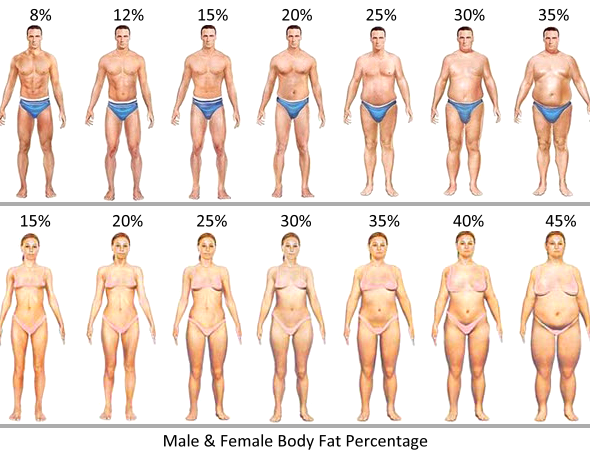Maintaining A Healthy Body Weight
Are You Struggling To Gain A Healthy Body Weight?
Both undernutrition and overnutrition are associated with an assortment of unpleasant health conditions. The underweight, defined as having a body mass index or BMI of less than 18.5, are predisposed to poor maternal and infant health as well as childhood growth issues and lower than desirable mental maturity. In the meantime, overweight and obesity, defined as having a BMI of more than 30, is connected with chronic diseases such as hypertension, type-2 diabetes, cardiovascular disease, stroke, and certain types of cancer.
Malnutrition is often the term used to refer to both undernutrition and overnutrition. Individuals are considered to be malnourished if suffering from undernutrition if their diet does not supply them with sufficient calories and protein for normal maintenance and growth. Individuals are also considered to be malnourished if suffering from overnutrition if they are consuming too many calories. Malnutrition can also be interpreted as the result of inadequate, unnecessary or imbalanced consumption of nutrients.
How Many Calories Should I Be Eating Each Day?
To accurately estimate just how many calories an individual should be consuming each day, it is first of all necessary to determine the individuals BMR (Basal Metabolic Rate). The BMR result reveals just how much energy, in the form of calories, your body will require to support critical bodily functions while at a total resting state. In fact, your basal metabolic rate is the single largest component of your total energy burned each day.
The basal metabolic rate is influenced by several factors: The more mass you have, height or weight, the more fuel the body requires to sustain larger organs, metabolic rate decreases when we age because muscle mass usually declines by five to ten percent each decade after the age of thirty, and body composition such as the lean muscle, bone and fat ratios differ between men and women. The daily calorie requirement is the BMR result multiplied by a factor with a value between 1.2 and 1.9, depending on the individual’s activity level.
This Daily Calorie Calculator below is modeled on the Mifflin St.Jeor equation, which is a formula that was introduced in 1990, and has been proven to be more accurate than previous BMR formulas. The Mifflin St.Jeor equation is now considered to be the formula standard when it comes to calculating BMR. Feel free to use this calorie calculator responsibly to view the amount of total calories that your body will require every day.

1 pound = approx 454 grams = approx half a kilogram and 1 kilogram = approx 2.2 pounds
To lose weight, 500 calories can usually be safely subtracted from the diet each day, for each pound of weight you want to lose every week. To gain weight, 500 calories can usually be added to the diet each day, for each pound of weight you want to gain every week.
Caution: Be aware that total calorie levels lower than 1200 calories per day are not recommended and weight loss of less than 2 pounds per week is also not recommended. Please remember that the basal metabolic rate is indicating how much the body requires when at total rest.
For a more balanced approach to a 1 pound per week reduction, increase your physical activity. Reduce your calorie intake by 250 calories each day and exercise to burn off the other 250 calories. This approach prevents a decline in your metabolic rate and encourages increased lean muscle mass.
Calculate Your Daily Calorie Intake Requirement
Calorie Intake Calculator

The essential nutritional elements are carbohydrates, protein, healthy fats, and fibre. The carbohydrates are either classified as simple or complex, food sources classed as simple carbs would include sugars, sweets, and soft drinks, food sources classed as complex carbs would include fruits, vegetables, whole grains, rice, wheat, corn, potatoes, and beans. It is of course recommended to seek out complex carbs such as breads, pastas, fruits, vegetables, and dairy products for the bulk of your carbohydrate consumption.
If you were to count the grams of carbohydrates, protein and healthy fats on many food item labels you will usually get results that just do not add up. One gram of carbohydrate or protein equates to four calories, one gram of healthy fat equates to nine calories. Be aware that many nutrition facts labels list calories without counting those from the dietary fibre content even though dietary fibre is considered to be a carbohydrate.
It is extremely important to increase the fibre content of our diets. Both soluble and insoluble fibre are an important part of a healthy balanced diet. Fibre can assist in the prevention of weight gain, diabetes, certain types of cancer, heart disease, and has also proven beneficial in digestive health. Consuming wholegrain food types and plenty of fruits and vegetables will ensure both adults and children are gaining sufficient fibre.

Site Menu
Affiliates
- Healthy Resolutions
Good Health & Longevity - Healthy Lifestyle Habits
Advocating Healthier Habits

